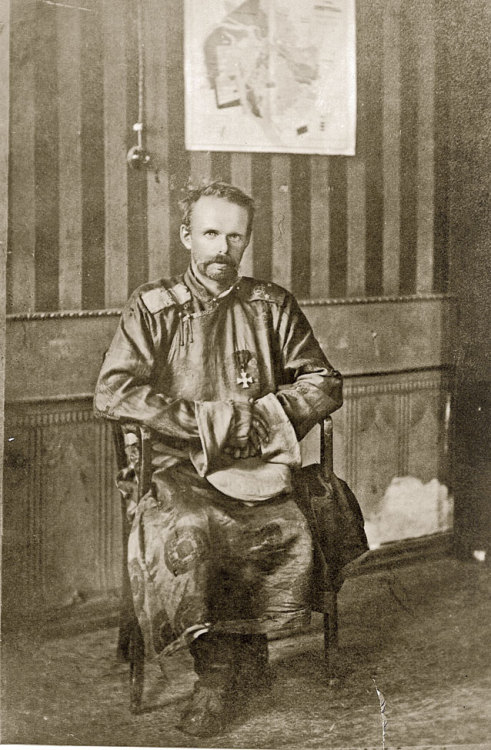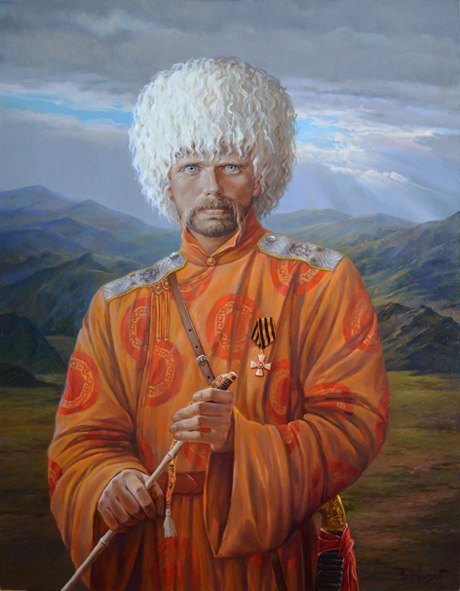peashooter85:The Man Who Would Be KhanBaron Roman von Ungern Sterberg was an Estonian noble descende
peashooter85:The Man Who Would Be KhanBaron Roman von Ungern Sterberg was an Estonian noble descended from German aristocracy who was wholeheartedly loyal to his Emperor, Czar Nicholas II. During World War I, Ungern was a high ranking officer in the Imperial Russian Army, fighting bravely against the Germans and Austrians, rising to the rank of Major General. When the Russian Revolution broke out in 1917, leading to the subsequent takeover by the Bolsheviks and death of the Imperial family, Ungern supported the White Russians, and was posted in Central Asia and Siberia. It was there that Ungern “went native”, adopting Mongolian clothing, converting to Buddhism, and even believing that he was a reincarnation of Genghis Khan.In 1920 Ungern recruited a motley collection of White Russian, Mongolian, Cossack, Japanese, Chinese, Tibetan, Tartar, and various other Central Asian troops into his own personal army which he called the “1st Asiatic Cavalry Division”, which numbered 1,460 men. On October 1st, 1920, he invaded Mongolia, then occupied by the forces of the Republic of China, capturing the capital Urga (now Ulaanbataar) by the beginning of November. Ungern restored Bogd Khan to the Mongolian throne, who was the ruler of Mongolia before the Chinese occupation. Ungern began to build his kingdom in Mongolia with incredibly ambitious goals in mind. His plan was to destroy the Bolsheviks in Russia and restore the Romanov Dynasty to the Russian throne. Then he wanted to overthrow the Republican Chinese, restoring the Qing Emperor to the Chinese throne. His end goal was the creation of a restored Mongol Empire, which would be co-ruled by Mongol and Russian nobles, with him ruling as a de facto “Great Khan” and absolute dictator. During Ungern’s rule in Mongolia, he was known to surround himself with various mystics, fortunetellers, and magicians. Thus he earned the nickname “The Mad Baron”. He was also a very iron fisted dictator. He executed Bolsheviks or those who were suspected of Bolshevism, and likewise executed Jews, forcing them to leave the country.Ungern’s rule as “Great Khan” ended in 1921 when he sent his army into Siberia to support the White Russians. While he thought himself a Great Khan, he was no Genghis Khan, and his ragtag force was no horde. The 1st Asiatic Cavalry was quickly defeated by the Red Army, who in turn invaded Mongolia. Ungern attempted to flee Mongolia for Transbaikal, but was captured on August 20th, 1921. After a brief show trial he was executed by firing squad. -- source link
Tumblr Blog : peashooter85.tumblr.com

